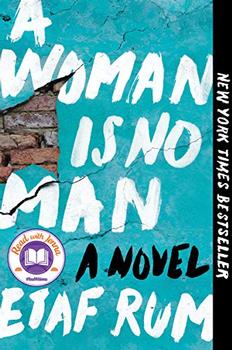Reading Guide Questions

Please be aware that this discussion guide will contain spoilers!
- Why might a community or culture have a "code of silence"? What are the potential risks of such secrecy? In what ways is such silence harmful to Isra and other women and girls?
- Beyond the literal, what does it mean for a person to have a voice? Why is it important to health and safety? What are the various forces that silence Isra's voice?
- Why are books so important to Isra, Sarah, and Deya? What makes the reading of books so threatening to Isra's mother, Fareeda and the men in the novel?
- In the frustrated words of Isra's mother, "What does love have to do with marriage?" What is the purpose of arranged, loveless marriages? Why would her mother accuse Isra of being a sharmouta because she wanted to fall in love?
- Isra is taught from an early age that, "Obedience [is] the only path to love." What does this mean? Why is obedience important in a society? When does obedience become oppressive or dangerous?
- When Isra first meets Adam, he vehemently claims: "I am free." To what extent is this true or not? What forces limit personal freedom? What is a healthy balance of personal freedom and obligation to family or community?
- Why does Fareeda believe that, "Preserving our culture is what's most important," despite the suffering it brings to the women and girls in the family? What, more specifically, does she believe must be preserved?
- In what different ways do Isra, Deya, Sarah, Adam, Fareeda, and Khaled assimilate to American culture? Which acts of assimilation from their children and grandchildren are acceptable to Khaled and Fareeda? Which are not? What does this reveal about their values?
- Throughout the novel, men are forgiven for committing zina, for drinking, sexual infidelity, and violence toward women. How is this explained and justified? What is the source of this double standard that contradicts even the Quran?
- Isra's suffers the profound shaming of her daughter and of herself for giving birth to only girls. Why are girls and women thought to be of such little value in her family and culture? What vast effects do these ideas have on girls as they grow up? What can be done to resist such psychological and physical harm?
- Of what value is Isra's writing of letters to her mother that she never sends?
- Despite the oppressive limits to their role and presence, how do the women and girls throughout the novel find ways to express themselves? Are there other responses that might serve them well?
- Telling her younger sister Nora bedtime stories about their family, Deya realized that "telling a story wasn't as simple as recalling memories." What might she mean? Why is it important to decide to leave some things unsaid in a story? In what ways is this also true in life or not?
- Sarah and Deya disagree about whether literary stories should "protect us from the truth" or "be used to tell the truth." What does each mean? In what ways does lying or pretending, as Deya admits to doing, differ from telling a story?
- What's most important to Sarah in her life? What explains the courage she possesses to stand up to and defy her oppressive family? What must she sacrifice to secure her independence and identity?
- Consider the many literary allusions in the novel — A Thousand and One Nights, Farenheit 451, Pride and Prejudice, The Stranger, etc. What does each bring to the novel? What is particularly important about Sylvia Plath's The Bell Jar?
- Fareeda concludes that despite spending "her entire life being pushed and pulled, from kitchen to kitchen, child to child...it was better to be grounded, to know your place, than to live the way these Americans lived...with no values to anchor them down." Why is it so essential to her about maintaining these values, even if they're oppressive? What is potentially threatening about freedom or uncertainty?
- Why does Fareeda believe Omar's desire to love and respect his wife is "American nonsense?" How does she reconcile this with her resentment toward Khaled for not showing her love and appreciation? What is the "different kind of love" that Isra experiences when reading by the window?
- Sarah argues that, "Being happy means being passive," and prefers discontentment in order to drive creation. What does she mean? What does it mean to be happy? What determines whether discontent is productive and motivational or oppressive?
- What many details and forces lead to Isra's tragic death at Adam's hands? Why is Adam so easily forgiven and freed of responsibility by Khaled and Fareeda?
- Fareeda believes that, "Culture could not be escaped. Even if it meant tragedy. Even if it meant death." What does she mean? What has happened to her that might explain why she remains so attached to a culture that has destroyed her family?
- Deya strongly refuses to believe in naseeb, or destiny, saying, "I hate the idea that I have no control over my life" and later, when arguing with Fareeda about going to college, "My destiny is in my hands." What is destiny? Why is the idea of destiny so powerful or useful to many people? To what extent is a person free to make choices in his or her life? What forces work against this? How does Deya develop such independence and empowerment?
- What is individually, socially, and culturally valuable, vital even, about women telling their own stories? What various ways throughout their lives can girls and women be supported to determine their own stories?
Unless otherwise stated, this discussion guide is reprinted with the permission of Harper Perennial.
Any page references refer to a USA edition of the book, usually the trade paperback version, and may vary in other editions.

 Book Reviewed by:
Book Reviewed by:





